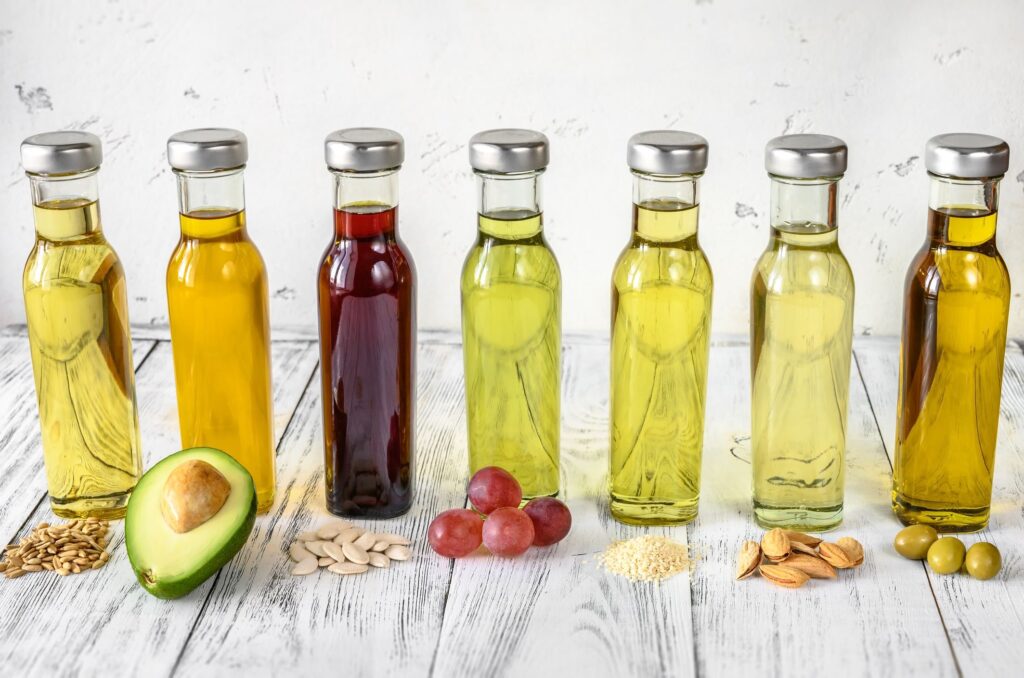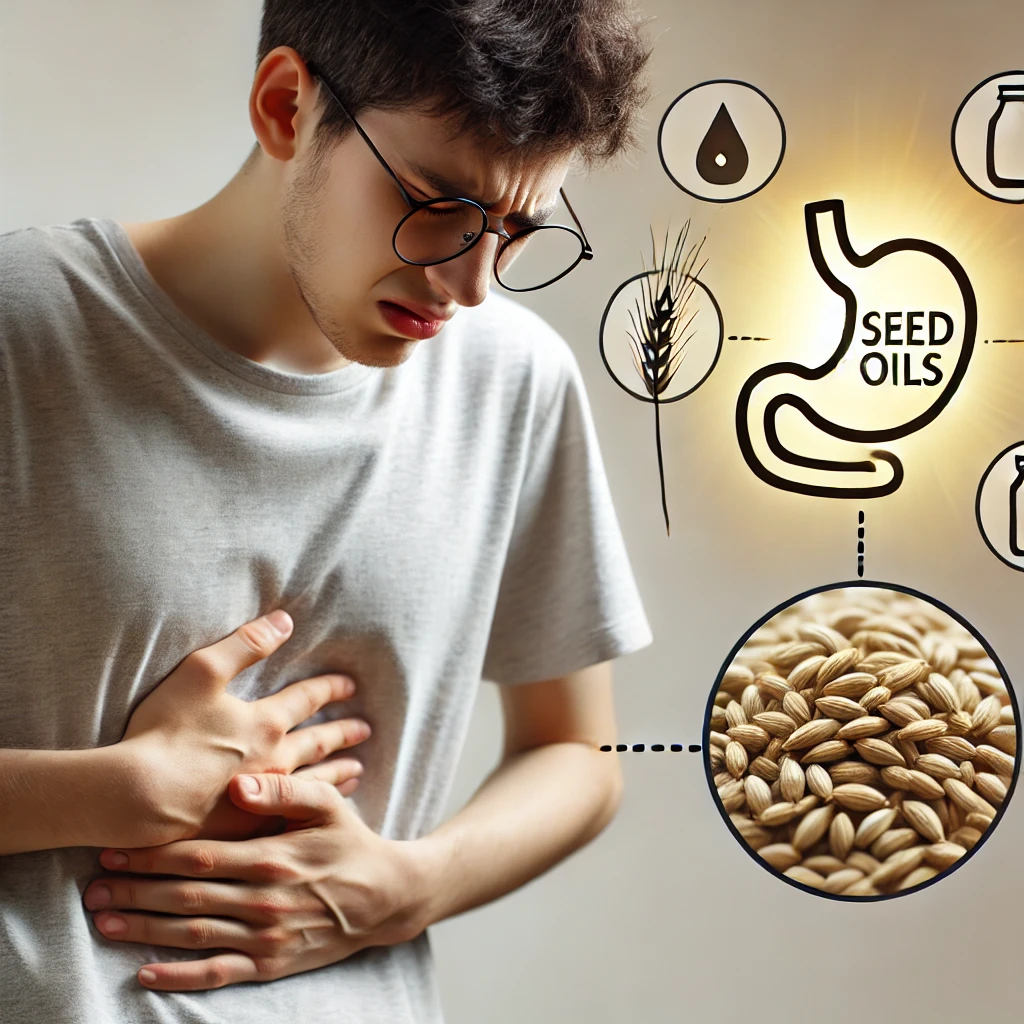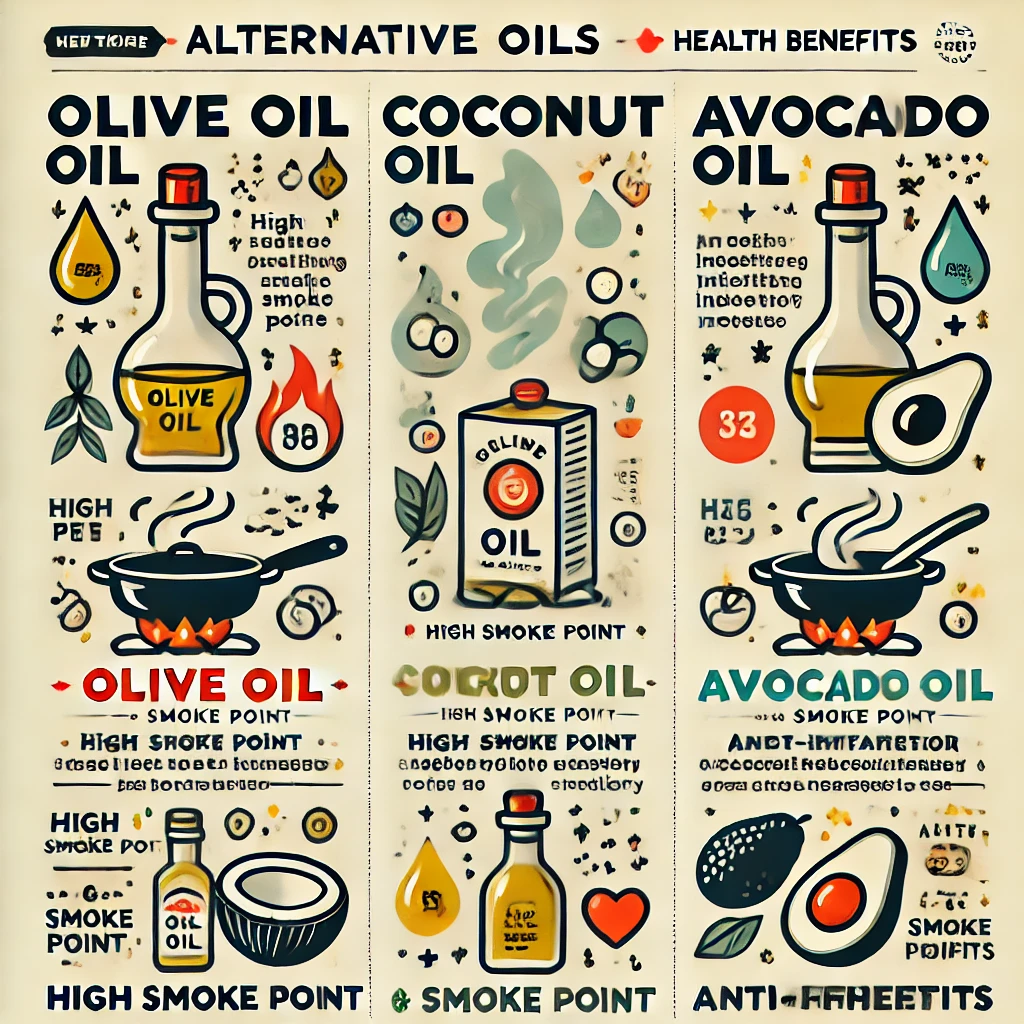My Unexpected Journey with Seed Oils
Introduction to My Experience with Seed Oil Side Effects

I never thought I would have to take a closer look at something like seed oils. Did you know there might be side effects from using them? Seed oils, which come from plants like sunflower, canola, and soybean, were supposed to be a healthy choice. Since I care about staying healthy, I believed in all the good things people said about these oils. My kitchen soon filled up with different kinds, and I started using them in my cooking every day without even thinking twice.
At first, everything seemed fine. Who would not want to believe they are making a healthier choice? I assumed these oils were contributing in a positive way to my well-being. But little did I know, I was in for a rude awakening. If you are curious about why you might want to be cautious, you can read more about are seed oils bad for you.
Initial Expectations vs. Reality
I started off with big hopes, think that switching from regular fats to seed oils would make me healthier. I expected my skin to look better, my stomach to feel good, and to feel great overall. But things did NOT go as planned.
After just a few weeks of using seed oils, strange things started happening. My stomach did not feel right, and my skin began having weird reactions. It was very confusing. I wanted to figure out what could be causing these problems.
| Expectations | Reality |
|---|---|
| Better digestion | Digestive issues |
| Clearer skin | Skin reactions |
| Enhanced well-being | Health concerns |
The difference between my initial expectations and unexpected side effects was stark. Digestive problems and skin issues led me to dig deeper into the possible adverse effects of seed oils. If you’re experiencing similar issues, you may want to explore seed oil dangers and why some might have an adverse effect.
In the end, things didn’t turn out the way I expected. Now, I had to deal with the new problems that came with using seed oils, making me rethink my choice. This journey taught me how important it is to know exactly what I’m putting into my body and to never just assume something is healthy.
Unveiling Seed Oil Side Effects

Digestive Issues
The biggest surprise I had with seed oils was how they affected my stomach. I started getting bloated and gassy, and it felt like it happened for no reason. My stomach started cramping more often, and it felt uncomfortable. Even my bathroom habits changed, which made me feel even worse.
| Digestive Issue | Frequency |
|---|---|
| Bloating | Daily |
| Gas | Frequently |
| Stomach Cramps | Multiple times a week |
| Irregular Bowel Movements | Weekly |
For more insights into how seed oils can affect digestion, check out seed oil dangers.
Skin Reactions
My skin did not do so well, either. I started getting pimples in spots that usually stayed clear. I also had red, itchy patches that felt irritated and uncomfortable. This was not great, so I began to think about how seed oils might be affecting me. My skin has always been a bit sensitive, but this felt different.
| Skin Reaction | Occurrence |
|---|---|
| Breakouts | Frequently |
| Inflamed Patches | Occasionally |
| Itchy Skin | Daily |
If you’re curious about the inflammatory effects of seed oils, visit seed oils and inflammation.

Impact on Overall Health
Besides problems with my stomach and skin, the biggest issue was how tired I felt overall. I had less energy and felt sluggish. I also noticed small aches and pains popping up more often. This made me start to wonder if seed oils are really as healthy as people say.
| Health Issue | Severity |
|---|---|
| Lethargy | High |
| Lack of Energy | High |
| Aches and Pains | Moderate |
Reading about the negative impacts of seed oils on general health can provide a broader understanding. Check out are seed oils bad for you.
Unveiling these side effects has been crucial in reassessing my nutrition choices and understanding the potential pitfalls of seed oils. If you want to dive deeper into alternatives, you might find seed oils and olive oil informative.
Understanding the Culprits
Types of Seed Oil Side Effects to Watch Out For
In my journey to uncover the side effects of seed oils, my discovery was that not all seed oils are created equal. Some have more adverse effects than others. The oils that raised the most concern included:
| Seed Oil | Common Use | Potential Side Effects |
|---|---|---|
| Soybean Oil | Cooking, salad dressings | Digestive issues, allergies |
| Sunflower Oil | Frying, baking | Skin reactions, inflammation |
| Corn Oil | Cooking, margarine | Digestive problems, hormonal imbalance |
| Canola Oil | Baking, frying | Skin irritation, inflammation |
These oils are often used in cooking and commercial food products. Their high omega-6 fatty acids content can disrupt the balance of fatty acids in the body, leading to various health issues.
Why there are some Adverse Side Effects from Seed Oil
Here’s what I found out about seed oils and why some people think they’re not great for us:
- Too Much Omega-6: Many seed oils are full of omega-6 fatty acids. Our bodies need some omega-6, but too much of it can lead to problems like swelling and other health issues. If you want to know more, check out our article on how seed oils might cause inflammation.
- How Seed Oils Are Made: To get oil from seeds, companies often use high heat and chemicals. This can take away good nutrients and add harmful stuff.
- Easily Damaged by Air and Light: Seed oils can break down when they touch air, light, or heat. When this happens, they create something called “free radicals,” which can harm our cells and lead to aging and sickness. Learn more in our article about the dangers of seed oil oxidation.
- Additives and Preservatives: Sometimes, seed oils have extra chemicals added to make them last longer on store shelves. These chemicals might cause allergies or other health problems.
On the other hand, oils like olive oil, which have more “good fats” and less omega-6, are generally thought to be better for us. You can read more about the differences between seed oils and olive oil in our article.
Knowing which seed oils to skip and why can help you make healthier choices.
Navigating a Seed Oil Side Effect-Free Lifestyle

After learning about the unexpected side effects of seed oils, I decided to make a conscious effort to avoid them. Here’s how I navigated a seed oil-free lifestyle.
Alternative Cooking Oils
One of the first steps I took was to find suitable alternatives for cooking. There are several oils that are not derived from seeds and can be healthier options. Here are a few I considered:
| Alternative Oil | Smoke Point (°F) | Key Benefit |
|---|---|---|
| Olive Oil | 374 – 405 | Rich in antioxidants, anti-inflammatory properties |
| Coconut Oil | 350 | Boosts HDL cholesterol |
| Avocado Oil | 520 | High smoke point, rich in monounsaturated fats |
| Butter | 350 | Contains beneficial fatty acids |
For more about the benefits of swapping seed oils, check out my article on seed oils and olive oil.
Reading Labels Carefully
To stay away from seed oils, I had to get really good at reading food labels. Lots of packaged foods sneak in seed oils, so I spent time carefully checking ingredient lists. Here are some helpful tips I learned:
- Watch out for words like “vegetable oil,” “canola oil,” “soybean oil,” and “sunflower oil.”
- Be careful with packaged and processed foods because they often have seed oils.
- Choose whole foods, like fruits and veggies, when you can to avoid hidden ingredients.
Knowing the different names for seed oils helps you avoid eating them by accident. This has been super helpful, especially when buying new products.
Seeking Professional Advice
When I changed my diet in a big way, I had a lot of questions and even some worries. Getting help from experts made everything easier to understand. Here’s why it was so helpful:
- Nutritionists can give you advice that fits your personal health needs.
- Doctors can check how your body is reacting to these changes.
- Dietitians can help you plan meals that don’t include seed oils.
If you’re thinking about making changes like this, talking to experts is a smart idea. This way, you can make sure your body is getting everything it needs. You can also read more about the risks of seed oils in my article on seed oil dangers.
Living without seed oils has been a learning adventure. I’ve found new oils to use, learned to read labels closely, and listened to professional advice to stay healthy.

